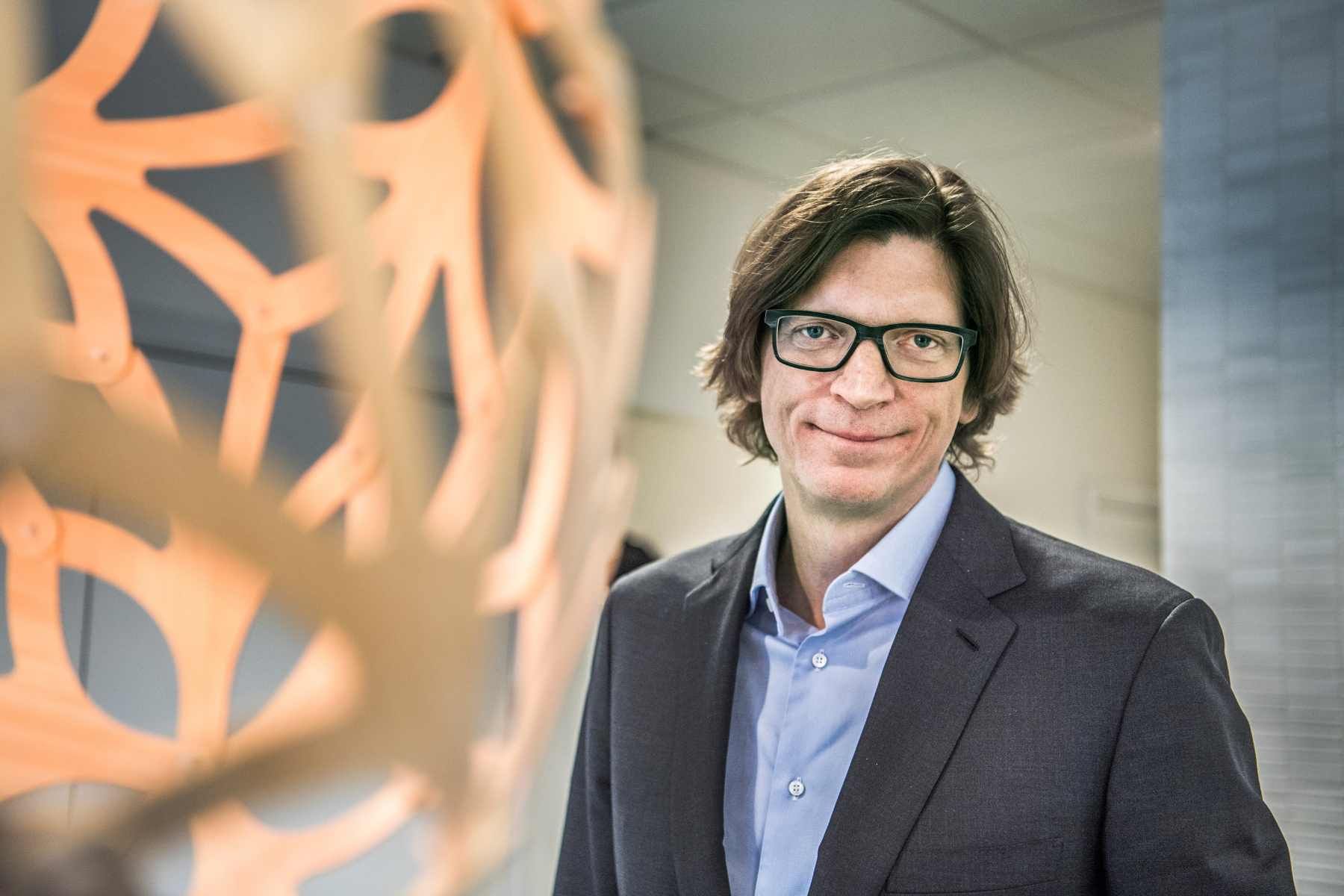'Europe is next', says fungi tech firm after securing fresh funding from poultry giant
German startup Kynda uses the power of fungi to create alternative proteins. Now the company has scored €3 million in seed funding for a product that aims to transform the meat and pet food industries. <br><br>Co-founder Franziskus Schnabel tells Impact Loop how Kynda's planning to crack the mass market.


When an architect and a lawyer get together to start a food-tech company in a pig barn, it may sound like a long shot to succeed.
But fast forward a few years, and German startup Kynda is now on the verge of taking its alternative protein to a mass market after raising €3 million in seed funding for a solution that uses agricultural biproducts to create mycelium.
Kynda announced the investment early on Wednesday and co-founder Franziskus Schnabel (the architect in the founding duo) sat down with Impact Loop to discuss the potential of the company’s patented process. Schnabel says he is convinced it can be scaled, to create healthier and more sustainable food products for both humans and animals.
"This funding round is particularly important for us because we now have a strategic partner on board," Schnabel says. "That’s what makes this so exciting – it’s about more than just the financial investment."
That strategic partner is German poultry giant PHW Group, which is joining as an investor along with Enjoy Ventures and Swiss climate tech investor Clima Now.
Kynda plans to use the money to ramp up production at its new facility outside Hamburg, while the partnership with PHW will help speed up technological developments and open doors to new customers, Schnabel says.
[split-article-here]
Making use of wasted biomass
Kynda’s mission is simple: to make better use of the billions of tonnes of agricultural biomass that are wasted every year.
According to the company, only about 25 percent of that biomass is utilised for human consumption, while 75 percent is left over in the form of side streams and various biproducts.
"We’re dealing with a highly inefficient system," Schnabel says. "We take these side streams, which are currently massively underutilised, and use them to ferment a new superfood ingredient."
Kynda’s solution uses side streams like okara – the pulp left over from the production of oat milk or soy milk – and puts it into a bioreactor where it is fermented with the help of fungi to create mycelium, the strand-like roots of fungi.
Food that looks and tastes like meat
In less than 48 hours, the process produces an edible mycoprotein that can be consumed on its own or mixed with other food products to create anything from hamburger patties to sausages and nuggets, or animal feed.
"It’s as flexible as meat, has the same umami flavour, and the fibres you’d expect in meat products," Schnabel says. "You can put it straight into a frying pan, and it browns beautifully thanks to the Maillard reaction. The aroma is slightly nutty with a hint of chicken, and it’s ready to eat straight away."
Kynda already sells its own alternative meat products and had revenues of €1 million in 2024. But the bigger plan is to sell its bioreactors and starter culture straight to agricultural producers so that they can produce their own mycelium on a much larger scale.
"We’re collaborating with a dairy company that has branched into oat milk production, generating around 10 tonnes of oat okara every day," Schnabel says. "Another company produces 20 tonnes of soy okara daily. They’re keen to use our technology to upcycle these side streams."
Starting out in a pig barn
Schnabel and his lawyer co-founder Daniel MacGowan-von Holstein are perhaps not the stereotypical figures that you’d expect to find at the helm of a climate tech startup.
Neither of them have the scientific research background of many other impact founders.
What they had in common when they met 11 years ago was a passion for the food industry, and they started collaborating on creating vegan patties for MacGowan-von Holstein’s hamburger restaurants in Hamburg.
That partnership then grew when they started investigating ways of producing more sustainable proteins. They eventually settled on fungal fermentation as the answer.
"We very soon learned that this technology should be the solution to world hunger," Schnabel says.
The duo teamed up with scientists to develop their process, and the company's first lab was set up in a pig barn on Schnabel's farm.
"We started in true garage style – nothing like the typical startup scene in big cities," Schnabel recalls. "It was basic and straightforward, but powerful because we didn’t need much capital."
Kynda still only has about the employees so the immediate focus is on Germany and the DACH region, although there are international expansion hopes.
"The next step will be Europe, and we’re already receiving global enquiries," Schnabel says. "It’s definitely a global opportunity because nutrient waste is a worldwide issue. For example, companies dealing with soy okara find it challenging due to its instability. But we can transform it into a valuable product in just 48 hours. For these companies, our solution is a game-changer."
Subscribe to Europe's new platform for impact news
- Quality journalism, interviews, investor profiles and deep-dives
- Join 11 000+ top impact founders and investors across Europe
- Or get our free daily newsletter
Keep reading – get in the loop!
- Håll dig i loopen med vårt dagliga nyhetsbrev (gratis!)
- Full tillgång till daglig kvalitetsjournalistik med allt du behöver veta inom impact
- Affärsnätverk för entreprenörer och investerare med månatliga meetups
Fortsätt läsa – kom in i loopen!
- Håll dig i loopen med vårt dagliga nyhetsbrev (gratis)!
- Full tillgång till daglig kvalitetsjournalistik med allt du behöver veta inom impact
- Affärsnätverk för entreprenörer och investerare med månatliga meetups









.avif)